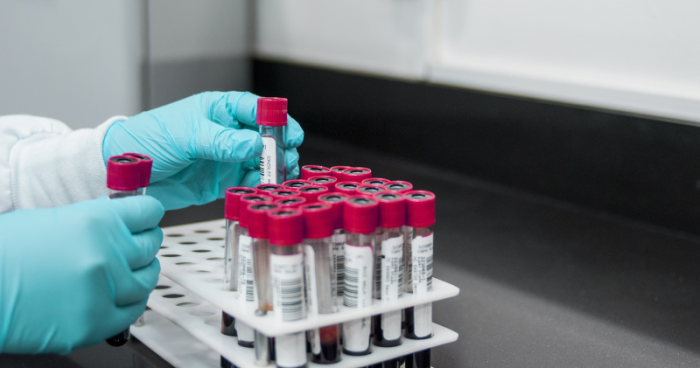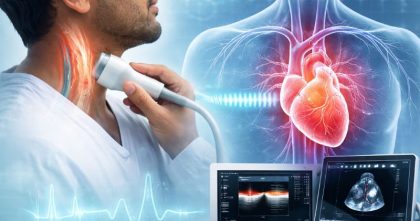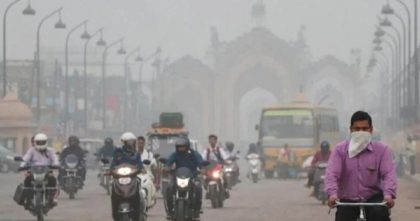Do you ever feel tired or out of breath, but your regular tests come back “normal”? You might need different tests — ones that check how well your heart is pumping.
Many South Asians dismiss fatigue as “just getting older” or “working too hard.” But these symptoms could be early warning signs of heart problems. The good news? Simple tests can catch issues early, when they’re easier to treat.
Why Early Detection Matters
Do you ever feel tired or out of breath, but your regular tests come back “normal”? You might need different t
Heart failure doesn’t happen overnight. It develops slowly, often over years. During this time, your heart gradually weakens or stiffens, but you might only notice mild symptoms like:
- Getting tired more easily
- Feeling short of breath when climbing stairs
- Swollen ankles at the end of the day
- Needing extra pillows to sleep comfortably
According to the American Heart Association, South Asians develop heart disease about 10 years earlier than other groups. This makes early testing even more important for our community.
Remember: Tests don’t mean something is wrong — they help keep you safe. Think of them like checking your car’s engine before a long trip, not waiting until it breaks down on the highway.
ests — ones that check how well your heart is pumping.
Many South Asians dismiss fatigue as “just getting older” or “working too hard.” But these symptoms could be early warning signs of heart problems. The good news? Simple tests can catch issues early, when they’re easier to treat.
Key Tests for Heart Health
Here are the most important tests that can detect heart problems early:
1. BNP / NT-proBNP Blood Test
What it is: A simple blood test that measures a hormone called B-type natriuretic peptide.
What it shows: When your heart is under stress or stretched, it releases more BNP. Higher levels may indicate your heart is working too hard.
Why it matters: According to the Mayo Clinic, this test can detect heart failure even before you have serious symptoms. It’s one of the quickest ways to check if your heart needs help.
What to expect: Just a regular blood draw — no fasting or special preparation needed.
2. Echocardiogram (Heart Ultrasound)
What it is: An ultrasound test that shows pictures of your heart in motion.
What it shows: This test measures your “ejection fraction” — how well your heart pumps blood. It also shows your heart’s size, shape, and how your valves are working.
Why it matters: The Cleveland Clinic calls this the “gold standard” for diagnosing heart failure. It can find problems years before they become serious.
What to expect: You’ll lie down while a technician moves a wand over your chest. It’s painless, has no radiation, and takes about 30-45 minutes.
3. ECG or EKG (Electrocardiogram)
What it is: A test that records your heart’s electrical activity.
What it shows: Your heart rhythm, rate, and whether you’ve had a previous heart attack.
Why it matters: It can detect irregular heartbeats and heart damage that might go unnoticed otherwise.
What to expect: Small sticky patches (electrodes) are placed on your chest, arms, and legs. The test takes only 5-10 minutes and is completely painless.
4. Chest X-ray
What it is: A quick image of your chest area.
What it shows: The size and shape of your heart, and whether there’s fluid in your lungs.
Why it matters: An enlarged heart or fluid in the lungs can be signs of heart failure. This test helps doctors see if your heart is working properly.
What to expect: You’ll stand in front of an X-ray machine for a few seconds. It’s quick and simple, with minimal radiation exposure.
5. Stress Test
What it is: A test that shows how your heart works during physical activity.
What it shows: Whether your heart gets enough blood during exercise, and how hard it has to work.
Why it matters: Some heart problems only appear when your heart is working harder. According to the World Health Organization, stress tests can uncover hidden problems that aren’t visible when you’re resting.
What to expect: You’ll walk on a treadmill or pedal a stationary bike while your heart is monitored. If you can’t exercise, you might be given a medication that makes your heart work as if you were exercising.
6. Regular Blood Pressure, Blood Sugar, and Cholesterol Tests
What they are: Standard tests you should get at regular check-ups.
What they show: Whether you have high blood pressure, diabetes, or high cholesterol — the “triple threat” for heart disease in South Asians.
Why they matter: These conditions damage your heart over time if not controlled. Regular testing helps catch problems early.
What to expect: Blood pressure is measured with a cuff around your arm. Blood sugar and cholesterol require simple blood tests, sometimes with fasting beforehand.
When Should You Get Tested?

You should consider heart testing if:
- You experience symptoms like unusual fatigue, shortness of breath, swelling in your ankles or feet, or discomfort in your chest
- You have risk factors such as diabetes, high blood pressure, high cholesterol, or excess belly fat
- Heart problems run in your family, especially if relatives had heart issues before age 60
- You’re over 45 and haven’t had a heart checkup in the past two years
- You’ve had COVID-19, as it can sometimes affect the heart
The National Health Service (NHS) in the UK recommends that South Asians consider heart screening earlier than other groups — ideally starting around age 40 rather than 50.
What to Ask Your Doctor
Many doctors won’t automatically order these tests unless you have obvious symptoms. Here are questions you can ask at your next appointment:
- “Could we check my BNP level to see how my heart is doing?”
- “Would an echocardiogram be helpful to check my heart function?”
- “What’s my ejection fraction, and is it in the normal range?”
- “Given my South Asian background, what heart tests would you recommend for someone my age?”
- “What tests should I get annually to monitor my heart health?”
- “Are there any early signs of heart failure I should know about?”
If your doctor asks why you want these tests, simply explain that South Asians have a higher risk of early heart disease, and you’re being proactive about your health.
Don't Wait for a Crisis
According to the American Heart Association, many heart problems can be managed effectively when caught early. But once severe damage occurs, it may be impossible to reverse completely.
Imagine the difference between fixing a small leak in your roof versus rebuilding after a collapse. Early detection works the same way for your heart.
Consider these facts:
- Early-stage heart failure can often be managed with just medications and lifestyle changes
- Advanced heart failure may require surgery or specialized devices
- Many South Asians wait until symptoms are severe before seeking help
- Testing is much less expensive than treating a heart crisis
You don’t need to be sick to ask smart questions. Being proactive about your heart health is one of the most important gifts you can give yourself and your family.
Taking Action
According to the American Heart Association, many heart problems can be managed effectively when caught early. But once severe damage occurs, it may be impossible to reverse completely.
Imagine the difference between fixing a small leak in your roof versus rebuilding after a collapse. Early detection works the same way for your heart.
Consider these facts:
- Early-stage heart failure can often be managed with just medications and lifestyle changes
- Advanced heart failure may require surgery or specialized devices
- Many South Asians wait until symptoms are severe before seeking help
- Testing is much less expensive than treating a heart crisis
You don’t need to be sick to ask smart questions. Being proactive about your heart health is one of the most important gifts you can give yourself and your family.




